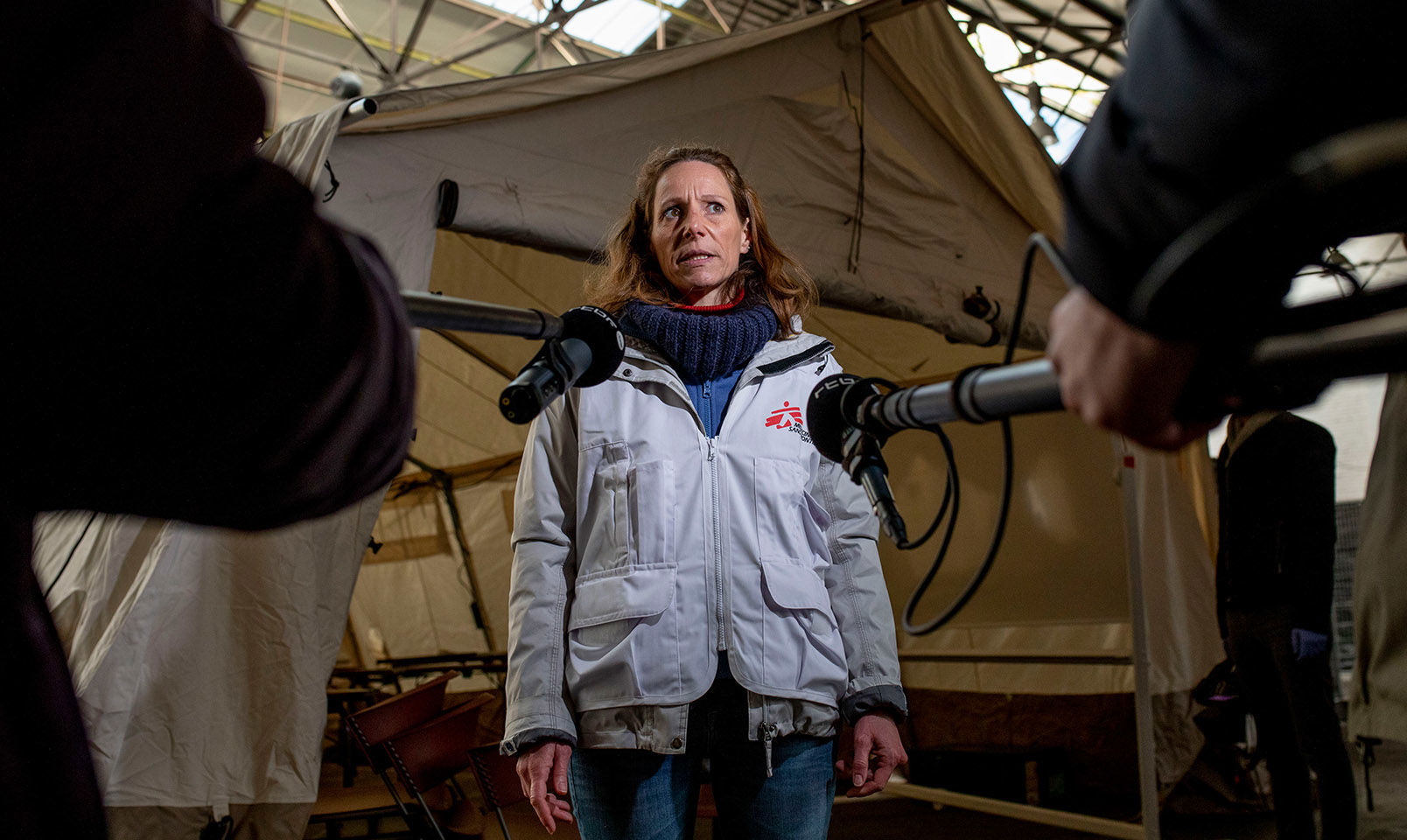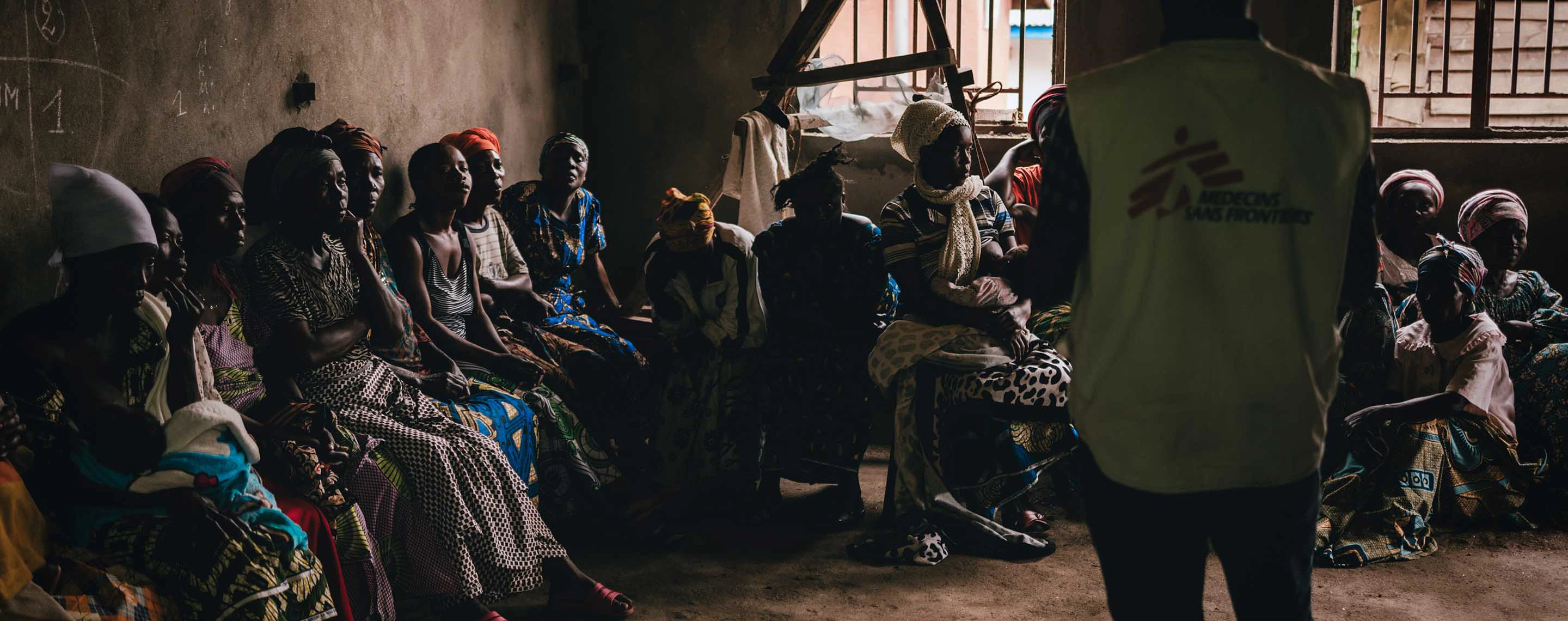Dear supporter,
Since June last year, Hong Kong has gone through particularly challenging times, which have also been very concerning for MSF. We feel we owe you, our valued supporter, an explanation about our approach and our work in relation to the Hong Kong situation and the recent challenge of the novel coronavirus (2019-nCoV).
First though to go back into last year, when in November 2019, our medical team was starting to make contacts about getting into the Hong Kong Polytechnic University (PolyU) amidst heightened tensions. At the same time, we posted a public statement in an attempt to respond to some criticism directed at us. The statement did not refer to the contacts made and could have given the impression that MSF would not take medical action in PolyU or Hong Kong. We are very sorry that this statement appeared contradictory to many, and may have disappointed some of our supporters. We sincerely apologise for the confusion between what we said and what we did in PolyU.
There are some basic considerations that we use all around the world in deciding what we should do and when. As a medical organisation, we focus on medical needs. Our action starts with monitoring and assessing an emergency situation and its impact on the health conditions of a population, as the crucial step that determines what comes next. MSF has had an Operations Support Unit (OSU) in Hong Kong since 2011, whose responsibility is to look out for situations in the Asian region that might require an MSF medical response.
Since June 2019, we have been closely monitoring the medical needs in Hong Kong to identify where local medical response capacity could fall short and leave patients exposed.
Between June to November 2019, that meant:
- establishing direct and regular contacts with local medical facilities and practitioners, while assessing the situation on the ground and cross-checking with open source information;
- looking into the types of injury; understanding the number and nature of injuries sustained at each event; asking on-the-ground responders whether they have sufficient resources and manpower to treat patients;
- bringing in a clinical psychologist in mid-August to assess capacities and needs related to mental healthin the ongoing situation.
Before mid-November, the OSU’s work consistently revealed that there were indeed medical needs, both physical and mental, related to the situation. But from the limited and rapidly-evolving data we could gather, the indications were that medical practitioners and health facilities in private and public sectors, including those in the civil society, were responding to the needs sufficiently.
On 18 November, however, we saw that the restriction that had been placed on people entering PolyU could lead to a previously unseen situation – a potential lack of professional medics for people inside who would need medical attention. In the late afternoon of 19 November, our medical team with doctors, a nurse and a logistician entered the campus with police permission to assess and potentially assist.
The team again went into the PolyU campus on 20, 22 and 23 November, each visit lasting for several hours. In total, we medically assisted 29 patients. Twenty-eight of these patients consented to be referred to ambulance care.
It was when we began to make contacts with the police on 18 November that we posted the public statement. We very much regret the tone of the message and its collision with the reality of what we were about to do in PolyU. We are also aware that we should have done much more over the past few months to explain our work and our decisions. Again, we apologise and will try to do better in the future.
We will continue to improve our readiness to act, and provide much-needed assistance to the most vulnerable patients in medical emergency situations. As we go to print, the fast-evolving development of the outbreak of novel coronavirus (2019-nCoV) is of clear concern in Hong Kong and across the region. Since the end of January, an MSF emergency team has been deployed to Hong Kong with an initial focus on health education for especially vulnerable people, such as the elderly and other at-risk groups – activities similar to MSF’s intervention for Severe Acute Respiratory Syndrome (SARS) in Hong Kong in 2003. For more information on our current activities and key measures to prevent infection, please visit the MSF website: msf.hk/en/COVID-19
We hope you will continue to support us, and that the enclosed Borderline gives you a small snapshot of some of the lifesaving work that your generosity has made possible.
Yours sincerely,
Sam Taylor
Executive Director, Médecins Sans Frontières Hong Kong



